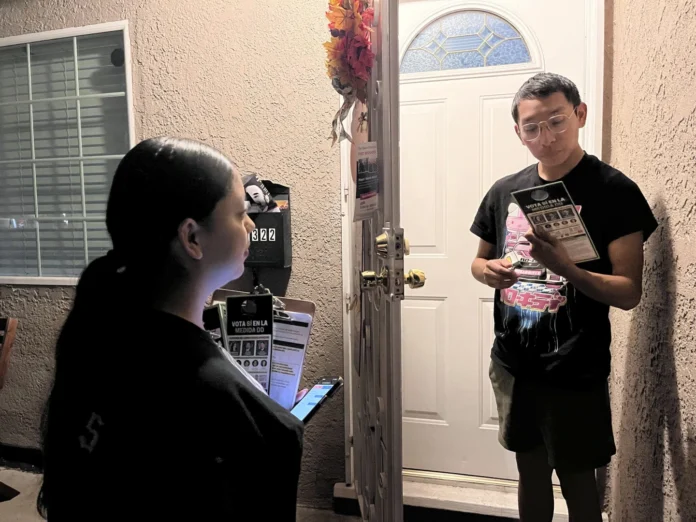Voters in a Southern California city rejected a measure that would have enabled non-US citizens to vote in local elections.
The Los Angeles Times reported Monday that Measure DD was defeated by 60% of voters in Santa Ana, a city of about 310,000 people in Orange County southeast of Los Angeles.
Santa Ana, a primarily Latino town, voted more for Vice President Kamala Harris than President-elect Donald Trump. According to experts, the measure’s failure may suggest that voters, particularly Latino voters, are changing their opinions toward immigration.
“This is consistent with trends we’ve seen in both polling and elections of the Latino community becoming more conservative on immigration issues,” said Jon Gould, dean of the School of Social Ecology at the University of California, Irvine.
Local leaders and conservative groups such as the Policy Issues Institute vehemently opposed the bill, claiming it would be expensive, litigation, and violate citizens’ rights.
Carlos Perea, an immigrant rights advocate who backed the proposal, stated that those organizations “hit the panic button.”
According to Perea, executive director of the Harbor Institute for Immigrant and Economic Justice, the results indicate Trump’s effect during a year in which the previous president campaigned strongly against illegal immigration.
It is unlawful for non-US citizens to vote for president or other federal positions, and there is no evidence of significant voter fraud by Americans or noncitizens, despite the fact that many top Republicans have made the prospect of illegal immigrants voting a big issue. They say that legislation is required to ensure the integrity of the vote.
However, an increasing number of cities around the United States are enacting legislation allowing non-US citizens to vote in local elections such as city council and mayoral campaigns. Supporters argue that it’s only fair because they reside in the areas and pay taxes.
In 2016, San Francisco passed Proposition N, which allows noncitizens with children under the age of 18 to vote in school board elections. Prop N passed after two similar attempts were defeated in 2004 and 2010.
Other states with municipalities that allow residents without citizenship to vote include Maryland, Vermont, and, most recently, Washington, D.C. New York City granted local voting rights to noncitizens in 2022, but a state judge overturned the law months later, preventing it from ever taking effect. The city is currently appealing the verdict.
